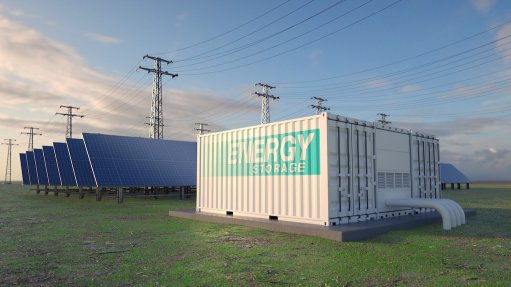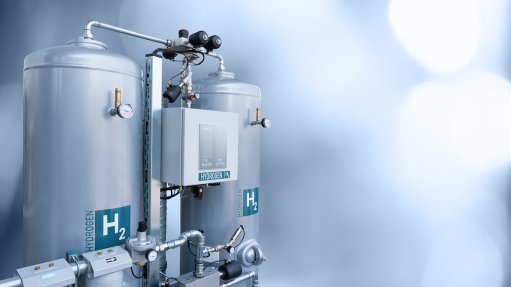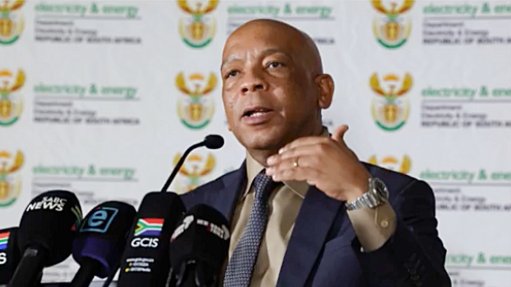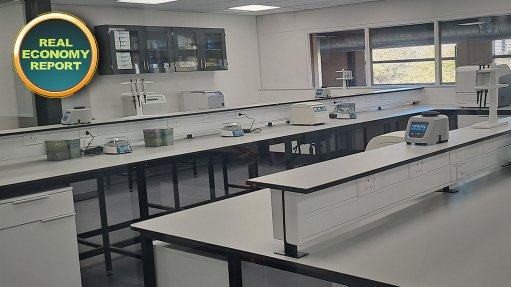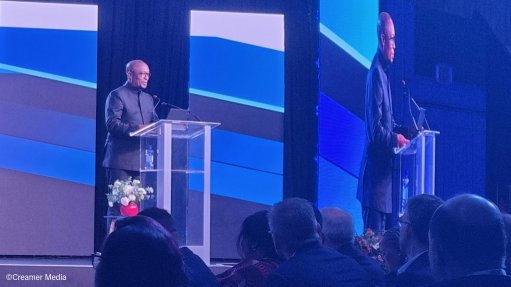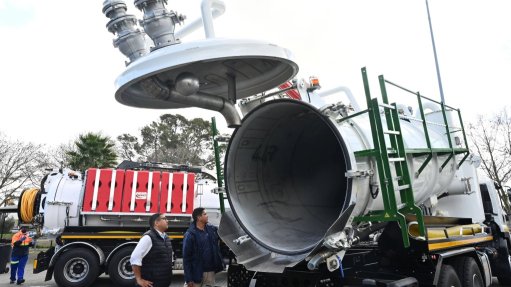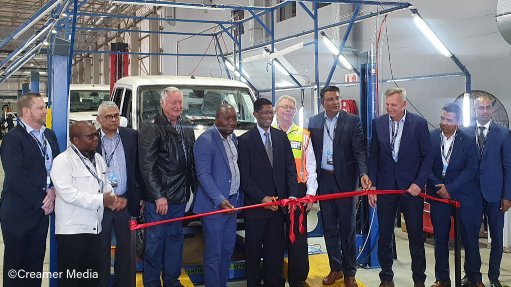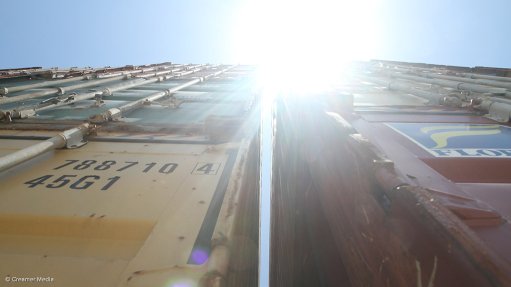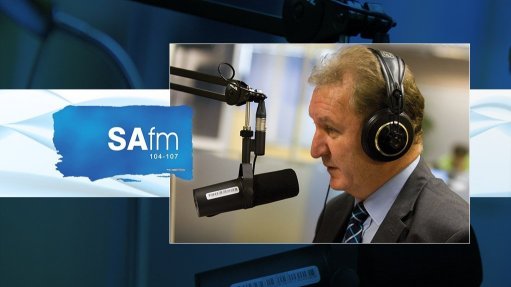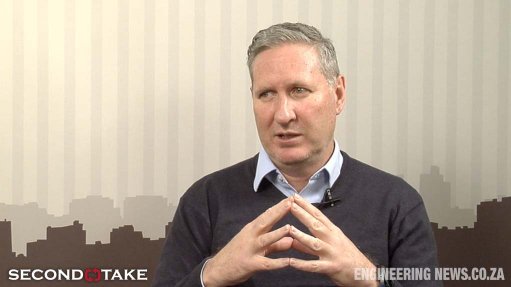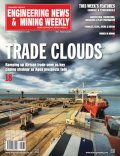Stakeholders urge Creecy to uphold Karpowership EIA refusal decision
Small-scale fishers from the West Coast and other stakeholders have commended the Department of Forestry, Fisheries and the Environment (DFFE) for its decision to refuse to grant Karpowership South Africa environmental authorisations for three proposed floating power plants (FPPs).
The fishers and stakeholders have also urged Forestry, Fisheries and the Environment Minister Barbara Creecy to “uphold her department’s refusal decision” owing to “several serious flaws” in Karpowership’s environmental-impact assessment (EIA).
In March, Mineral Resources and Energy Minister Gwede Mantashe announced that eight preferred bidders were selected for the Risk Mitigation Independent Power Producer Procurement Programme (RMIPPP) to reduce the country’s reliance on expensive peaking plants and fill the short-term electricity supply gap.
These proposals included three gas-to-power powership projects to be located in the ports of Richards Bay, in KwaZulu-Natal; Ngqura, in the Eastern Cape, and Saldanha Bay, in the Western Cape.
Upon analysing the EIA report with its legal team, Green Connection felt it was “flawed” in that no underwater noise studies had been conducted.
It was, therefore, “not possible to understand the impact that the powerships, which will supply electricity under a 20-year power purchase agreement, will have on the marine environment and on the fish that small-scale fishers depend on”, it stated.
Green Connection made its submissions to the DFFE and welcomed the Minister’s refusal to grant Karpowership an EIA authorisation.
In their appeal against the DFFE refusal, the environmental assessment practitioner (EAP) and Karpowership SA subsequently provided noise levels for their ships operating in Ghana.
Based on this information, it was concluded that the powerships have a low impact on marine ecology, thus, “proving” that Karpowership SA’s operations will not have a negative impact on the marine life in South African ports.
Green Connection community outreach coordinator Neville van Rooy, however, said that these noise studies have been critically analysed by an expert and found not to be credible nor independent and not a sound basis for decision-making.
“The initial recommendations of the Marine Ecology Specialist study and Specialist Study on Noise Impacts, presented for public comment on the draft EIA report, were not based on modelling of sound that would be produced by Karpowership SA’s vessels in the South African ports where they are intended to be located,” he said.
Additional evidence on underwater noise was introduced for the first time in the final EIA report, at which point the public was not afforded the right to comment, and as such was deprived of the right to controvert such evidence, Van Rooy added.
Green Connection has now submitted its comments (a 320-page document) on Karpowership SA’s appeal.
Public hearings on Karpowership projects are also being held on August 19.
“In our view, Karpowership failed to undertake a meaningful underwater noise impact study, which is critical to understanding the cumulative impacts on the Saldanha marine environments, which is not Ghana, in the first place.
“Since small-scale fishers in the area depend on fish (including juvenile fish) for their livelihoods, it is particularly important for them to understand these impacts and make their inputs to the decision-making process,” said Van Rooy.
Green Connection said it remained “extremely concerned” that the powership projects could undermine other important local economic sectors, such as aquaculture, which is also an important contributor to the local economy.
Green Connection also believes there are several renewable energy options that could fill the short-term electricity generation gap – with less greenhouse-gas emissions than the powerships, more local opportunities, and “which do not harm the fragile marine environment”.
“As we understand it, Karpowership SA has said the reason it cannot measure the impacts of underwater noise and vibrations, resulting from the operation of the gas turbines on the powerships, is because there are no powerships in the bay. Yet, affected fishing communities need to know if the noise will chase their fish away,” Van Rooy elaborated in the statement on August 19.
“Our ocean is too precious and our small-scale fishers too valuable for us to be satisfied with this ‘wait-and-see-what-happens’ approach. If Karpowership SA want to operate in South Africa’s ports, it is their responsibility to conduct all the required studies and modelling to predict the impacts on the marine ecology of underwater noise, as well as other impacts such as sea water warming and air pollution (including climate change impacts).”
Green Connection believes the controversial powerships are not needed and is hopeful that Creecy will uphold her department’s refusal to authorise these floating power stations.
According to its appeal, Karpowership SA claims that “the EIA clearly lists the location where the FPP will be moored into. The ship will be moored into Big Bay area in the Port of Saldanha. The Big Bay area is not a fishing zone and never was. We can safely assume that the operations of Karpowership SA will not threaten the livelihoods of small-scale fishermen because they are not operating in a fishing zone.”
This is disputed by small-scale fishers, who, according to Coastal Links Saldanha Bay Community’s Natalie-Jane van Wyk, “have been fishing here for decades. For generations, our livelihoods have come from the ocean”.
“This is where our skills and expertise lie. We are familiar with the marine species that live and breed here in Pepper Bay (known to most as Big Bay and Small Bay) and are not willing to risk these for a bit of electricity that could be generated in a number of other, more sustainable ways that do not threaten fisher jobs.
“Sadly, even with our knowledge, small-scale fishers are always excluded from decisions regarding the ocean,” she said.
Comments
Announcements
What's On
Subscribe to improve your user experience...
Option 1 (equivalent of R125 a month):
Receive a weekly copy of Creamer Media's Engineering News & Mining Weekly magazine
(print copy for those in South Africa and e-magazine for those outside of South Africa)
Receive daily email newsletters
Access to full search results
Access archive of magazine back copies
Access to Projects in Progress
Access to ONE Research Report of your choice in PDF format
Option 2 (equivalent of R375 a month):
All benefits from Option 1
PLUS
Access to Creamer Media's Research Channel Africa for ALL Research Reports, in PDF format, on various industrial and mining sectors
including Electricity; Water; Energy Transition; Hydrogen; Roads, Rail and Ports; Coal; Gold; Platinum; Battery Metals; etc.
Already a subscriber?
Forgotten your password?
Receive weekly copy of Creamer Media's Engineering News & Mining Weekly magazine (print copy for those in South Africa and e-magazine for those outside of South Africa)
➕
Recieve daily email newsletters
➕
Access to full search results
➕
Access archive of magazine back copies
➕
Access to Projects in Progress
➕
Access to ONE Research Report of your choice in PDF format
RESEARCH CHANNEL AFRICA
R4500 (equivalent of R375 a month)
SUBSCRIBEAll benefits from Option 1
➕
Access to Creamer Media's Research Channel Africa for ALL Research Reports on various industrial and mining sectors, in PDF format, including on:
Electricity
➕
Water
➕
Energy Transition
➕
Hydrogen
➕
Roads, Rail and Ports
➕
Coal
➕
Gold
➕
Platinum
➕
Battery Metals
➕
etc.
Receive all benefits from Option 1 or Option 2 delivered to numerous people at your company
➕
Multiple User names and Passwords for simultaneous log-ins
➕
Intranet integration access to all in your organisation






